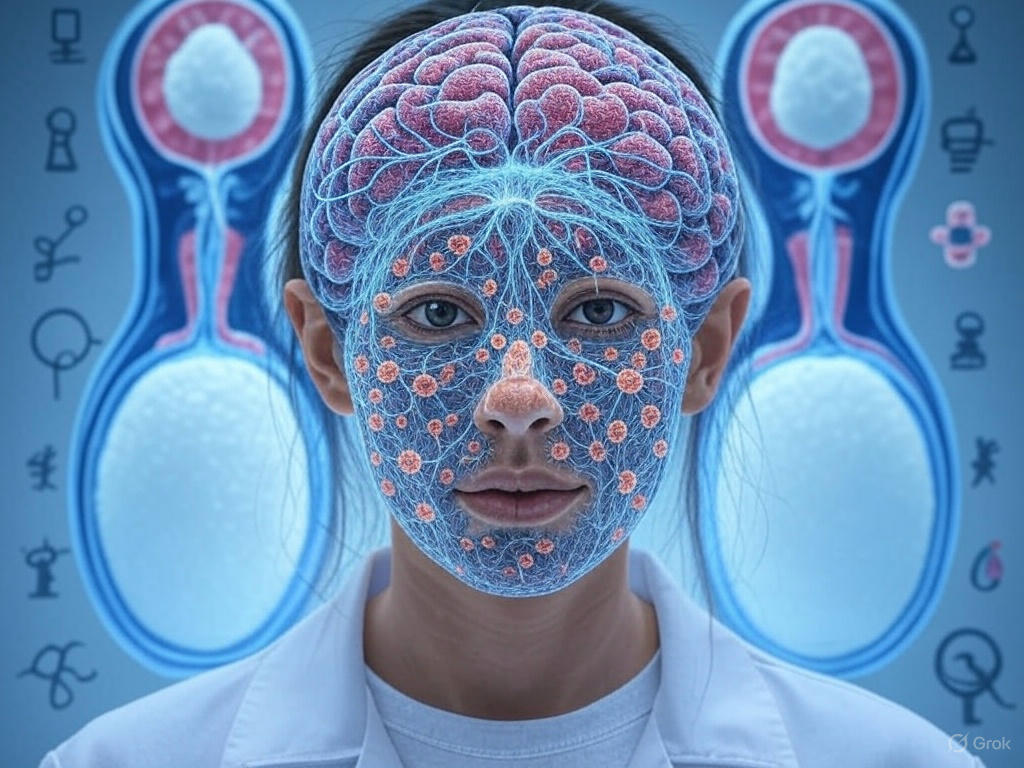
Sucralose and Your Brain: New Study Reveals How This Popular Sweetener May Disrupt Appetite Signals
Share
🧠 Sucralose and Your Brain: New Study Reveals How This Popular Sweetener May Disrupt Appetite Signals
🍭 What If Your "Guilt-Free" Sweetener Isn’t So Innocent?
Sucralose, the calorie-free sweetener hiding in countless diet sodas, protein bars, and sugar-free treats, might be doing more than just fooling your taste buds. According to a new study published in Nature Metabolism, it could also be triggering unexpected changes in the brain—particularly in regions responsible for controlling appetite, cravings, and decision-making.
Led by Dr. Kathleen Page, a physician-scientist at the Keck School of Medicine of USC, this small yet powerful clinical trial may help explain why diet sweeteners have produced mixed weight-loss results and raised new concerns about their long-term metabolic impact.
🧪 The Study: Sucralose vs. Sugar vs. Water
Researchers studied 75 healthy adults (ages 18–35) with varying BMIs—ranging from healthy weight to obese. In a randomized crossover design, participants consumed one of three beverages across different sessions:
-
💧 Plain water
-
🍬 Sucrose-sweetened drink
-
🧁 Sucralose-sweetened drink
Using functional MRI brain scans, blood tests, and hunger ratings, the team measured how each beverage influenced hypothalamic activity (the part of the brain that controls appetite) and neuro-chemical responses.
🧠 Key Findings: Sucralose and Hunger Signals
-
Sucralose Increased Hypothalamic Blood Flow
Compared to sugar, sucralose triggered a stronger response in the hypothalamus, a key brain region involved in regulating hunger and energy balance. -
Sweetness Without Calories Confuses the Brain
Sucralose induced increased brain activity even without providing energy, suggesting the "sweet taste without calories" might create a neural mismatch, causing the brain to remain in a "still hungry" state. -
Participants with Obesity Showed Strongest Response
The brain’s reaction to sucralose was especially pronounced in people with obesity, raising questions about how noncaloric sweeteners might contribute to disordered eating patterns or metabolic dysregulation.
👩🔬 Sucralose May Alter Cravings and Motivation
More than just hunger, the study found that sucralose increased connectivity between the hypothalamus and brain areas involved in decision-making and reward, such as the anterior cingulate cortex. This suggests that cravings and food-seeking behaviors might be intensified—despite no actual increase in energy intake.
“We were surprised by how strongly the brains of participants with obesity responded to sucralose,” said Dr. Page.
🔄 Why Gender, Weight & Insulin Resistance Matter
The brain’s response to sucralose was not one-size-fits-all. Researchers found notable differences based on sex, body fat, and insulin sensitivity:
-
👩 Women experienced more pronounced changes in brain activity than men.
-
🧬 Those with insulin resistance showed a stronger hypothalamic response.
-
⚖️ People of healthy weight still experienced significant changes in hunger signaling.
These findings suggest that individual biology plays a major role in how nonnutritive sweeteners affect the brain.
⚠️ What Does This Mean for You?
While the study focused on short-term effects, the implications are powerful. Sucralose:
-
May stimulate hunger instead of suppressing it
-
Could affect food decisions and cravings
-
May lead to metabolic confusion, especially in women and people with higher BMI or insulin resistance
“Artificial sweeteners are not metabolically inert,” noted Dr. Susan Swithers, a professor at Purdue University not involved in the study. “They can impact the brain in ways that might actually undermine metabolic health.”
🧭 So Should You Avoid Sucralose?
Not necessarily—moderation is key. As Dr. Page recommends:
“Instead of relying on noncaloric sweeteners, aim to reduce total dietary sweetener intake—both artificial and natural—for better metabolic health.”
If you're using sucralose to manage weight or blood sugar, consider pairing that approach with nutrient-rich, whole-food eating and consulting a healthcare provider.
📌 Final Takeaways
-
🍭 Sucralose affects brain activity in regions controlling hunger and reward
-
👩⚕️ Women and individuals with obesity show stronger neurological responses
-
🧠 The mismatch between sweet taste and zero calories may confuse appetite regulation
-
🧃 Sucralose isn’t “neutral”—it could influence food cravings and decision-making
-
📉 Reducing all sweeteners may be more effective than swapping sugar for artificial alternatives
💬 What’s Your Take?
Have you noticed increased cravings after consuming diet drinks or sugar-free snacks? Share your experiences in the comments below!